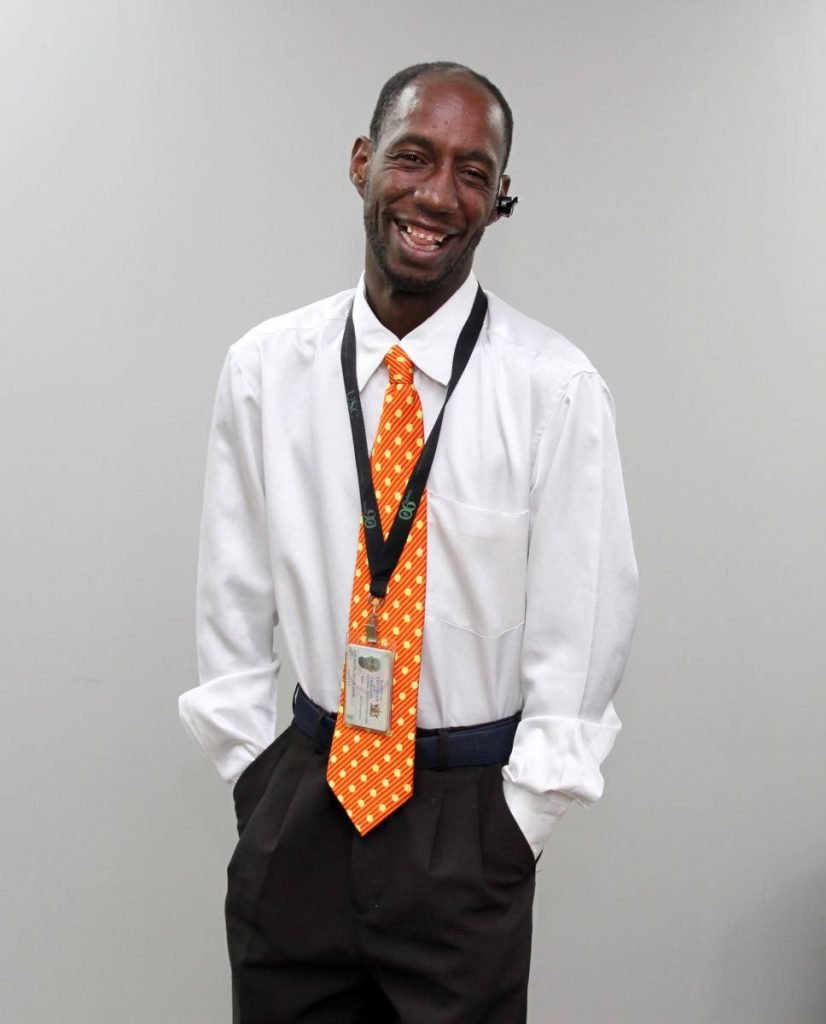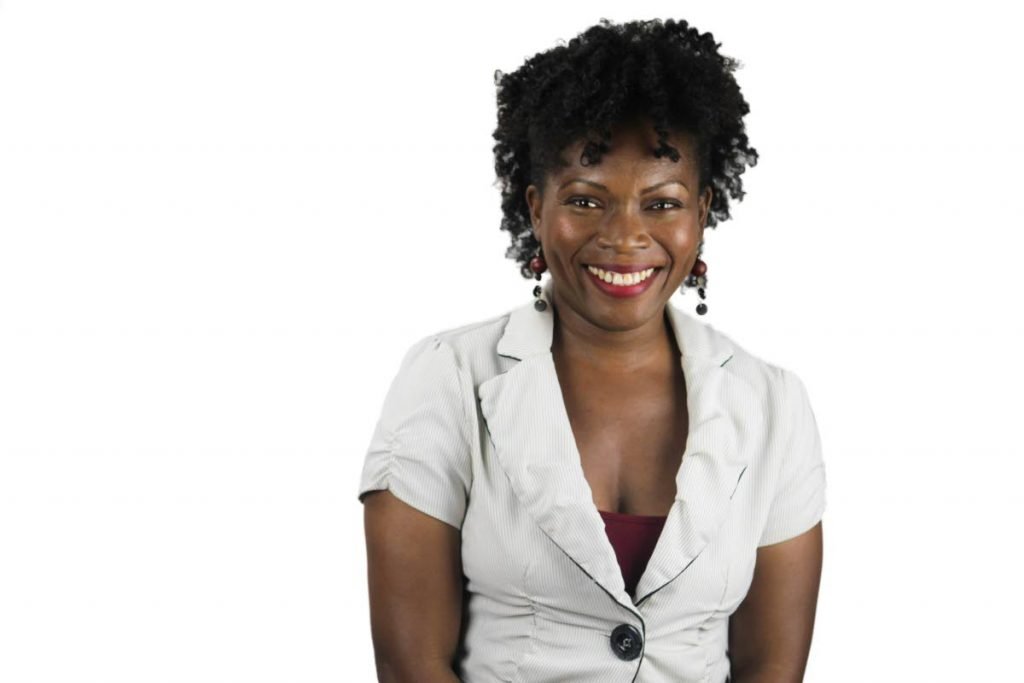Does conversion therapy work?

On August 19, Sunday Newsday carried a story on the “conversion” of Kelvin Darlington, formerly known as local cross-dresser and sex worker Saucy Pow. Darlington’s “conversion” was met with praise by members of TT’s religious community. The article was widely shared and, on Newsday’s Facebook page alone received 362 reactions, 188 comments and 723 shares, with comments including: “God can do anything” and “Will wait two months before I comment.”
In the article Darlington told of sexual abuse from a priest at the age of eight, which “introduced him to homosexuality.”
Darlington insisted he was not born gay, nor did he believe anyone else is. Instead, he believed gay men were..."sexually abused as youths, wanted to experiment sexually, or liked the idea of parties and other aspects of the lifestyle.”
Since meeting a Christian woman who took him to church, Darlington has changed his life. “He said the church and its members ‘see about him’ and got him male clothes,” the article said. Darlington said he now has a girlfriend and is looking for a permanent job.
A January 2018 paper called Conversion Therapy and Lesbian, Gay, Bisexual,Transgender (LGBT) Youth by UCLA’s School of Law Williams Institute defines conversion therapy as “treatment intended to change the sexual orientation, gender identity, or gender expression of LGBT people. It is grounded in the belief that being LGBT is abnormal.” It is practised, the paper said, “by some licensed professionals in the context of providing health care and by some clergy or other spiritual advisers in the context of religious practice.”
But there are several "misconceptions" arising out of the article that psychologist Dr Katija Khan
wants to address.
The first is that sexual orientation is not a choice. In e-mailed responses to Newsday, Khan said, “Decades of research have shown us this and there is no one fixed or default orientation. Heterosexuality (opposite-sex attraction) and homosexuality (same-sex attraction) are both natural and normal forms of human sexuality.”
She added that much like left-handedness, homosexuality may be less common but “certainly not unnatural.”
The idea that homosexuality is caused by things like abuse, she said, is also flawed since more research evidence suggests that sexual orientation occurs naturally and not caused by persuasion, influence or seduction by another person.
“I also want to explicitly state that sexual abuse does not cause someone to turn gay. It causes great distress and trauma but it does not change someone’s sexual orientation,” she said.

Sex educator Onika Henry, in a phone interview with Newsday, also stressed that abuse is in no way linked to homosexuality. “That is completely untrue. You cannot simply switch your sexual orientation just because of abuse.”
Khan wants TT to know that sexual orientation differs from sexual behaviours. Sexual behaviours, she said, may not always be consistent with orientation.
“For example, a man can have sex with another man and not be gay. A gay man can have sex with a woman and that does not make him straight. A woman can have sex with a man and not be heterosexual.
"Issues of 'cross-dressing' and 'dressing like a woman' are related to concepts of gender expression and gender identity, which are different from sexual orientation which relates to enduring emotional and sexual attraction. Mention of 'dancing suggestively' or 'flamboyance' relates to the issue of personality and behavioural expression, which is unrelated to sexual orientation," Khan said.
She did not want to speak to Darlington's circumstances specifically, since she feels it would be unethical, but said it was good to hear he believed he had some support now. However, she hoped he had access to professional counselling by a qualified mental health professional “who can help him deal with the trauma and abuse he has suffered and help him build his coping skills.”
Both Henry and Khan spoke to conversion therapy having been discredited since the turn of the millennium. Henry said there had been a lot of academic research disproving the effectiveness of the techniques used in conversion therapy, and there was no valid scientific evidence that sexual orientation could change. Khan said conversion therapy (also called sexual orientation conversion therapy, reparative therapy, or ex-gay ministry
) “is a fraudulent practice in which psychological or religious efforts are used to change, or convert, or suppress behaviour because of the false belief that certain sexual orientations are inferior or disordered and need to be changed.”
Conversion therapy tried to convert people who were bisexual and homosexual but has been proven to be a flawed practice that is harmful, ineffective, unscientific and unprofessional, she said.This kind of therapy, Khan said, has been denounced and rejected by health and mental health organisations across the world including the Pan American Health Organisation (PAHO), American Psychological Association, World Psychiatric Association, American Psychiatric Association, Indian Psychiatric Association, South African Society of Psychiatrists, Canadian Psychological Association, British Psychological Society, Australian Psychological Society, Brazil Federal Council of Psychology, American Medical Association and many more.
She said while people may experience “legitimate distress” in coming to terms with their sexual orientation, conversion therapy is not the answer since it “is more detrimental than any benefits that could be gained from a reduction in the prejudice they face from being LGBTQI.”
TT should work to decrease such distress by “banning pseudoscientific, fraudulent, unethical and harmful practices such as conversion therapy and continuing to advocate for equal human rights,” she opined.
When asked if she believed Darlington’s “conversion” would last, Henry said it is difficult to say, because sexuality is fluid and sexuality varies from person to person.
“Some people are definitely gay and are always going to be gay; some people are straight and are always going to be straight.
“But there are some people who, throughout their lifetime, may experience attractions outside of what would be their general sexual orientation. So it is possible for people who might have been gay at one point in their life to experience an attraction to the opposite sex and vice versa.”
Some people, because of religious persuasion, may convince themselves they have an aversion to their sexual orientation, but, Henry said, because the human brain and sexuality do not work like that, these people may experience some kind of cognitive dissonance the state of having inconsistent thoughts, beliefs, or attitudes, especially as relating to behavioural decisions and attitude change.
Executive director of Coalition Advocating for Inclusion of Sexual Orientation's (CAISO) Colin Robinson believes Darlington's comments in the August 19 Sunday Newsday article were “very, very loving and show that even the most wounded members of the Lesbian, Gay, Bisexual, Transgender, Queer/Questioning and Intersex (LGBTQI) community can find love and protection within the community.”
Robinson said Caiso and its partner organisations were “more than ready” to provide Darlington with what they could.
His story, for Robinson, demonstrates the importance of protecting young people who may appear to be gay or lesbian from clergy abuse and family abuse.
“This is not a matter of opinion,” he said when asked if he believes Darlington’s “conversion” will last. “Sexual orientation is not amenable to conversion. This is what science says. This is what your experts will tell you.
“The important thing is for him to find healing. He has been telling me stories of abuse for years. These are not new stories by any means,” Robinson said.

Chairman of the TT Pride Arts Festival Rudy Hanamji acknowledged that Darlington had suffered terrible trauma and had found himself in an “unfortunate situation.”
“The indictment really is on society and the fact that from a social services point of view and in particular from an LGBTQI social services point of view, the systems have failed Kelvin,” Hanamji said.
He said it was now “incumbent upon the LGBTQI NGOs
and Community Based Organisations who work in those areas
to continue to reach out to him and others like him and ensure that they adequately provide the services that they are being funded to do.”
Hanamji said if someone was born a member of the LGBTQI community, they could do as much as they would like not to actively engage in practices but somewhere along the line in their life, it is going to show, because that is their truth.
The challenge with Darlington's particular situation, he said, "is that he has expressed that the identity people know him for is as a result of abuse, and, therefore, it is quite possible he is not a member of the LGBTQI community. But I am not sure he has had the proper psychoanalysis done to understand exactly where he lies in the spectrum.”
Hanamji stressed there were many people who identified as LGBTQI who had not been abused, and he too was certain “conversion” or conversion therapy did not work.
“Unfortunately, if I just use my circle of friends, for example, I would say about 20 per cent, or two out of ten of them that I know, when they were younger, their parents did try some form of conversion. Whether that was spiritual or through psychiatric assistance, or basically just trying to reinforce heteronormative behaviour. It does not work."
By contrast, he said, “Most of my friends who have received love and acceptance from their family...tend to live very positive lives and they are able to express themselves and live their truth.”

Comments
"Does conversion therapy work?"